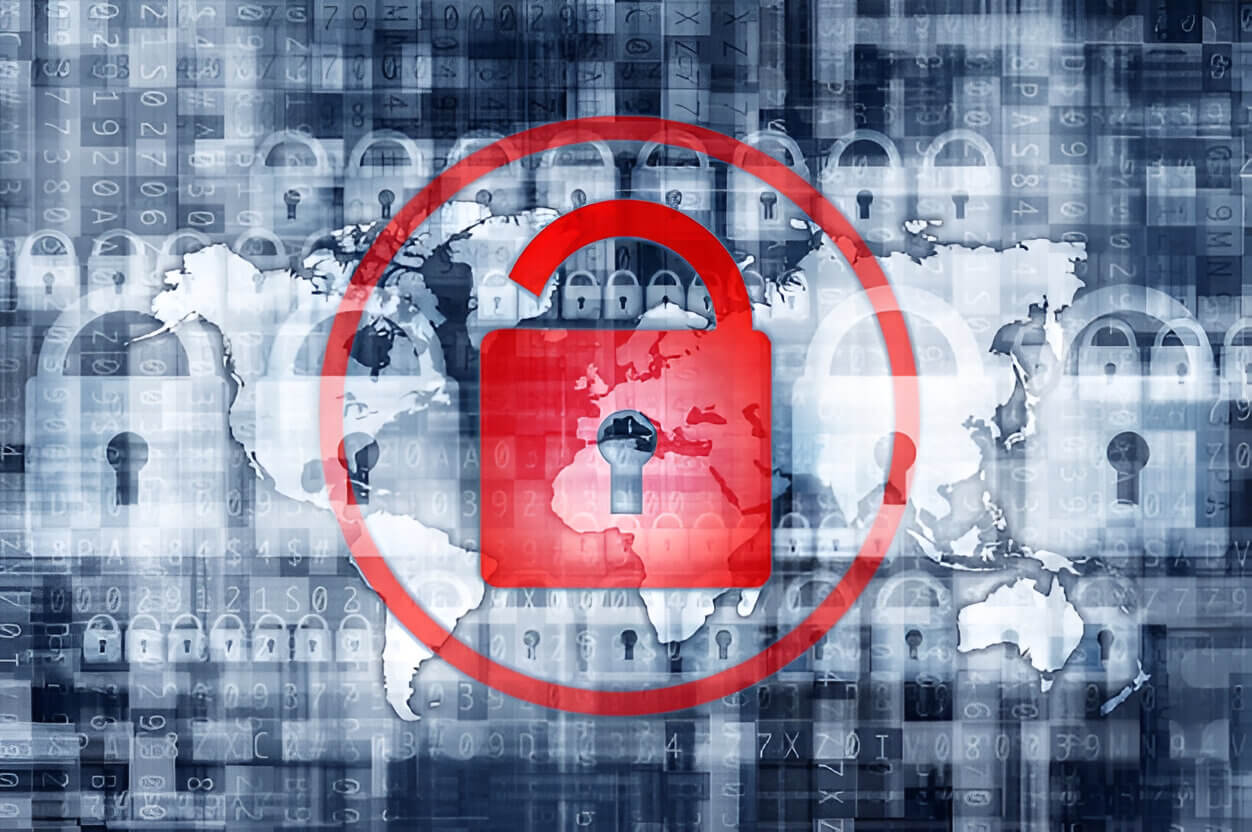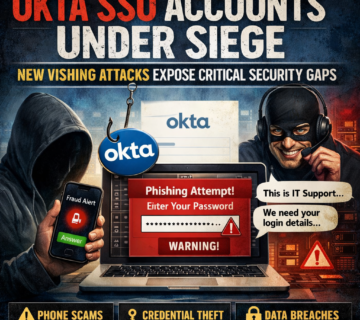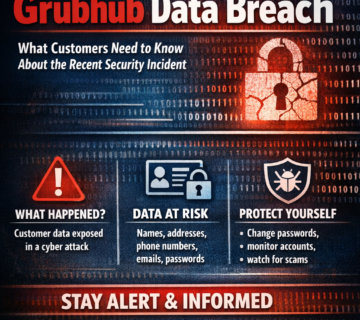National Public Data Breach: 2.7 Billion Records Leaked on Dark Web

In August 2024, the world witnessed one of the most significant data breaches in history when 2.7 billion records from National Public Data were leaked on the dark web. This breach exposed sensitive personal information, including Social Security numbers, names, and mailing addresses, putting millions at risk of identity theft and other cybercrimes. In this article, we will delve into the details of the breach, explore how the data was stolen, assess the impact on individuals and businesses, and provide expert recommendations on how to protect against future incidents. Additionally, we will answer some frequently asked questions about data breaches and outline how Technijian can help safeguard your data.
Introduction to the National Public Data Breach
The National Public Data breach is a clear demonstration of the vulnerabilities present in our increasingly digital world. This breach involved the leak of 2.7 billion records, making it one of the largest and most impactful data breaches ever recorded. The information leaked includes highly sensitive data that, if misused, could result in significant harm to individuals and businesses alike.
Details of the Data Breach
In August 2024, hackers released 2.7 billion records from National Public Data on a dark web forum. These records contained a wide range of personal information, including Social Security numbers, names, mailing addresses, and in some cases, information about relatives. While some records were outdated or inaccurate, many were valid and could be used by cybercriminals to commit identity theft, fraud, and other malicious activities.
How the Data Was Stolen
The breach is linked to an earlier incident in April 2024, when a cybercriminal group known as USDoD claimed to have access to the personal data of 2.9 billion individuals across the U.S., U.K., and Canada. This data was allegedly obtained from another threat actor using the alias “SXUL.” The stolen data, initially offered for sale, was eventually leaked on the dark web by a user named “Fenice,” who posted it in the form of two large CSV files totaling 277GB.
Impact of the Breach on Individuals
The impact of this breach is far-reaching, as it affects millions of individuals whose personal information is now accessible to cybercriminals. The leaked data can be used for identity theft, financial fraud, and other illegal activities. Victims of the breach may face significant financial losses, damage to their credit scores, and long-term challenges in restoring their identities. Moreover, the breach has heightened concerns about the security practices of companies that collect and store personal data.
Expert Opinions on the Breach
Cybersecurity experts have expressed deep concern over the National Public Data breach. Jon Miller, CEO of anti-ransomware platform Halcyon, pointed out that while much of the leaked information was already accessible to criminals, the organized and comprehensive nature of the data makes it particularly valuable. Oren Koren, CPO of security platform Veriti, highlighted the risks associated with the inclusion of information about deceased individuals, which could be exploited to create fraudulent identities.
Security Recommendations for Individuals
In response to this breach, individuals should take immediate steps to protect themselves. Here are some key recommendations:
- Monitor Your Credit Reports: Regularly check your credit reports for any unauthorized activity. You can request a free credit report from each of the major credit bureaus annually.
- Place Fraud Alerts: Consider placing a fraud alert on your credit files to make it more difficult for criminals to open accounts in your name.
- Freeze Your Credit: A credit freeze is a more robust measure that prevents new accounts from being opened in your name without your consent.
- Be Vigilant About Phishing Scams: Be cautious of unsolicited emails or messages that ask for personal information. Phishing scams often increase after a data breach.
- Use Identity Theft Protection Services: Consider subscribing to an identity theft protection service that can monitor your personal information and alert you to suspicious activity.
Business Security Measures to Prevent Data Breaches
Businesses, particularly those that handle sensitive personal information, must take proactive measures to protect their data. Here are some essential security practices:
- Encrypt All Sensitive Data: Encryption ensures that even if data is stolen, it cannot be easily read or used by unauthorized individuals.
- Implement Multi-Factor Authentication (MFA): MFA adds an additional layer of security by requiring users to verify their identity through multiple methods.
- Conduct Regular Security Audits: Regular audits help identify potential vulnerabilities in your systems and processes that could be exploited by cybercriminals.
- Train Employees on Cybersecurity Best Practices: Human error is often a key factor in data breaches. Regular training can help employees recognize and avoid common security threats.
- Invest in Advanced Threat Detection Tools: These tools can detect and mitigate threats before they result in a breach, helping to protect your business from cyberattacks.
The Value of National Public Data Records to Cybercriminals
National Public Data’s records are particularly valuable to cybercriminals because they are comprehensive and well-organized. This makes it easier for criminals to use the data for various malicious purposes, including identity theft, fraud, and targeted phishing attacks. The sheer volume of data in this breach also increases the potential for widespread harm.
The Role of Data Aggregators in Breaches
Data aggregators like National Public Data collect vast amounts of personal information from various sources, often without the knowledge or consent of the individuals involved. This practice creates large, centralized databases that are attractive targets for cybercriminals. When these databases are breached, the consequences can be devastating, as seen in this incident.
Can Data Aggregator Breaches Be Stopped?
Preventing breaches of data aggregators requires a combination of stronger regulations, better security practices, and increased transparency. Experts advocate for laws that require data brokers to inform individuals when their information is added to a database and provide options for opting out or deleting their data. Additionally, companies must encrypt all stored data and implement stringent security measures to reduce the risk of breaches.
The Need for Stronger Data Protection Regulations
The National Public Data breach highlights the urgent need for stronger data protection regulations. Existing laws often do not adequately address the risks posed by data aggregators, leaving individuals vulnerable to breaches and identity theft. Comprehensive data privacy laws, such as the General Data Protection Regulation (GDPR) in Europe, are needed to protect consumers’ personal information and hold companies accountable for safeguarding it.
The Limitations of Current Cyber Hygiene Practices
While good cyber hygiene practices, such as using strong passwords and enabling multi-factor authentication, are important, they may not be sufficient to protect against large-scale breaches like the one at National Public Data. The scale of data collection and aggregation means that individuals have limited ability to protect themselves. The responsibility for preventing breaches must also lie with companies and regulators who enforce data protection laws.
Global and National Responses to Data Breaches
In response to the increasing threat of data breaches, governments worldwide are implementing stricter data protection regulations. In the United States, various states have introduced their own data privacy laws, while the federal government is considering broader legislation. Internationally, the GDPR in the European Union has set a high standard for data protection, and other countries are following suit. These regulations are essential for holding companies accountable and protecting individuals’ privacy.
The Future of Data Privacy and Security
The future of data privacy and security will likely be shaped by ongoing advancements in technology and the continued battle between cybercriminals and those seeking to protect personal information. While breaches like the one at National Public Data are concerning, they also serve as a catalyst for change, prompting companies, governments, and individuals to take data security more seriously.
FAQs on Data Breaches
1. What should I do if my data was compromised in a breach?
If your data was compromised, you should immediately monitor your credit reports for unauthorized activity, consider placing a fraud alert or freezing your credit, and be vigilant about phishing scams. You may also want to subscribe to an identity theft protection service.
2. How can businesses protect against data breaches?
Businesses can protect against data breaches by encrypting sensitive data, implementing multi-factor authentication, conducting regular security audits, training employees on cybersecurity best practices, and investing in advanced threat detection tools.
3. Why are data breaches becoming more common?
Data breaches are becoming more common due to the increasing amount of personal information stored online, the growing sophistication of cybercriminals, and the often inadequate security measures taken by companies.
4. What are the long-term effects of a data breach?
The long-term effects of a data breach can include financial loss, damage to credit scores, identity theft, legal consequences for companies, and a loss of trust among consumers.
5. How can I find out if my data was part of a breach?
You can use online tools like “Have I Been Pwned” to check if your email address or other personal information has been compromised in a breach. Additionally, credit monitoring services can alert you to suspicious activity.
6. What role do regulations play in preventing data breaches?
Regulations like the GDPR provide a framework for protecting personal data and holding companies accountable for breaches. Stronger regulations can help prevent breaches by requiring companies to implement robust security measures and inform individuals when their data is compromised.
How Technijian Can Help Protect Your Data
At Technijian, we understand the critical importance of data security in today’s digital landscape. Our comprehensive cybersecurity solutions are designed to protect your business from threats like the National Public Data breach. We offer a range of services, including data encryption, multi-factor authentication, and advanced threat detection, to ensure that your sensitive information remains secure.
Our services include:
- Data Encryption: Protect your sensitive data by ensuring it is encrypted and unreadable to unauthorized users.
- Multi-Factor Authentication (MFA): Add an extra layer of security to your systems by requiring multiple forms of verification before granting access.
- Threat Detection: Identify and neutralize threats before they can cause harm with our advanced threat detection tools.
- Security Audits: Regularly assess your security measures to identify and address potential vulnerabilities.
- Employee Training: Equip your staff with the knowledge and skills needed to recognize and respond to cybersecurity threats.
Whether you’re a small business owner or a large enterprise, Technijian can help you implement the best practices needed to safeguard your data and protect your customers’ privacy. Don’t wait until it’s too late—contact us today to learn more about how we can help you stay secure.
Conclusion
The National Public Data breach serves as a stark reminder of the vulnerabilities that exist in our digital world. As individuals and businesses continue to rely on technology, the importance of data security cannot be overstated. By taking proactive steps to protect personal information and supporting stronger data protection regulations, we can reduce the risk of future breaches and ensure that our data remains safe.
About Technijian
Technijian is a leading Managed Service Provider (MSP) offering comprehensive IT Solutions tailored to meet the diverse needs of businesses. Specializing in IT Security and Network Security, Technijian ensures your organization’s data is protected against cyber threats. Our robust IT Services include 24/7 IT Support, ensuring seamless operation and minimal downtime for your business.
As experts in Cloud Computing Services, Technijian enables businesses to harness the power of the cloud for enhanced flexibility, scalability, and efficiency. Our IT Management solutions streamline operations, allowing you to focus on core business activities while we handle the complexities of your IT infrastructure.
Our team of skilled IT Consultants provides strategic guidance and customized IT Solutions, aligning technology with your business goals. Technijian’s comprehensive range of IT Services ensures optimal performance and reliability, making us your trusted partner in Information Technology.
With a commitment to excellence, Technijian delivers proactive Managed IT Services, anticipating and addressing potential issues before they impact your business. Our dedication to providing top-notch IT Support around the clock guarantees that your IT environment remains secure, efficient, and aligned with industry best practices. Choose Technijian for unparalleled IT Solutions that drive your business forward.





